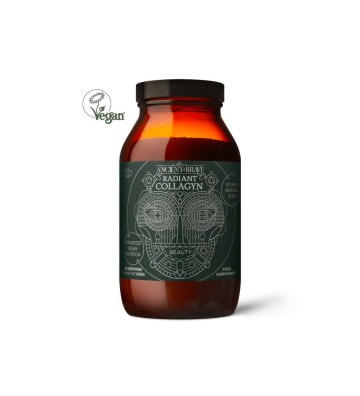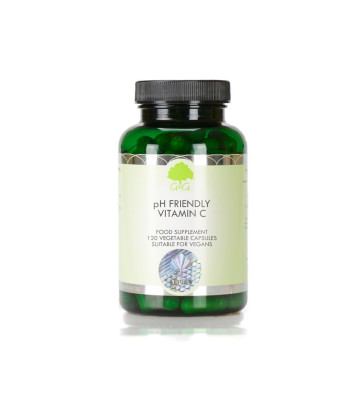More and more people are turning to collagen - supplements in liquid or tablet form. And actually there is no wonder, because the effects are noticeable. Not only for joint health, but also for skin. This answers the main question of this article: whether collagen is worth taking. We have never doubted it. However, if you need to be convinced, read on. We will also tell you what collagen supplementation should look like, including dosage.
.webp)
How does collagen work?
Collagen is the basic structural protein of our body - especially the skin. It makes up as much as 75% of the proteins found in this organ. It is responsible for its firmness, elasticity and hydration of the skin, but also supports the functioning of joints, tendons, blood vessels, intestines and bones. Yes, it is responsible for the entire body. We synthesize it on our own, but its production decreases with age. This we see primarily from the skin, though not only. Hair is weaker, joint pains appear, and blood vessels lose firmness. So here is the question: is it worth taking collagen?
Collagen - supplementation. Does it make sense?
Does collagen supplementation make sense? Yes. More and more studies indicate that collagen taken in supplement form can increase its levels in the body. This is associated with improved skin and joint health. In particular, supplements containing hydrolyzed collagen - pre-broken into smaller molecules - show good bioavailability and effectiveness. According to a study published in the Journal of Cosmetic Dermatology, eight weeks of collagen supplementation improves skin hydration and elasticity [1]. Interestingly, taking collagen can also reduce TEWL, or transepidermal water loss, and increases levels of natural moisturizing factor [2]. Of course, clinical studies show not only the effects of collagen on the skin. This protein is also extremely important for joints, and fortunately, supplementation also affects this aspect of health. People with osteoarthritis, rheumatism, joint pain and discomfort are noticing improvements [3]. So if you're wondering whether collagen works, we can confidently say that it does. And scientists have confirmed this for many years.
 Collagen
Collagen
 Skin, Hair, Nails
Skin, Hair, Nails
 Skin, Hair, Nails
Skin, Hair, Nails
New
 Collagen
Collagen
 Immunity
Immunity
Does collagen in pills work?
Yes, it works, however, provided that it contains a well-absorbed form of this protein, which is hydrolyzed collagen. In this form, collagen has a chance to pass through the digestive system, get absorbed into the bloodstream and reach the places where it is needed - such as skin, joints or tendons. Often in the composition of such pills you will also find vitamin C, zinc or hyaluronic acid, which promote natural synthesis and its stability. It's worth adding that the form of collagen (tablets, powder, liquid) doesn't matter much - what's more important is its origin, type (e.g. type I and III collagen for the skin), degree of hydrolysis and whether it's taken regularly. Even the best supplement will not produce results if it is taken irregularly or too briefly.
Collagen supplementation and absorption from the gastrointestinal tract
Absorption of collagen from the gastrointestinal tract, or actually not absorbing it, is one of the most common myths about supplementation of this protein. In fact, collagen as a complete protein is not absorbed entirely in the digestive tract. But... this does not mean that its supplementation is pointless. During the digestion of collagen - both that from food and supplements - long protein chains are broken down into shorter fragments: peptides and free amino acids. These are what:
- are absorbed by the intestinal epithelium,
- find their way into the bloodstream,
- are transported to tissues, where they can be reused in the synthesis of endogenous collagen (that is, the body's own collagen).
Studies show that collagen peptides are detectable in the blood as early as 1-2 hours after ingestion [4]. This means that the body not only digests, but also uses these molecules - provided they are properly prepared.
Collagen - supplementation and dosage
The dosage of collagen depends on the purpose of supplementation and the form of the preparation itself. The most commonly recommended are:
- 2.5 - 5 g per day to improve the appearance of the skin. This much is enough to notice a reduction in fine wrinkles, a healthier appearance, increased firmness and hydration.
- 10 g a day for joint problems or intense physical activity. Such supplementation will also be suitable as an anti-aging treatment.
- And what kind of collagen to choose ? Supplements that will contain the right amount and type of protein, as well as supplements that promote collagen synthesis. It all depends on your needs.
- Fish collagen is the best absorbed and will be perfect for skin supplementation. If you want the highest quality product, opt for marine collagen.
- Beef collagen - ideal for those who are in shape and want to take care of the skeletal system, but also for the skin.
- Vegan coll agen - although not an actual protein, as this can only be of animal origin, this supplement supports natural collagen synthesis. A good option for vegans.
In light of the available studies and opinions of specialists, the answer to the question of whether it is worth taking collagen: yes. And this is an unequivocal answer. It is not a miracle elixir of youth, but an element that supports regenerative processes and slows the effects of aging. With proper dosage and patience, you may notice positive changes.



.webp)







